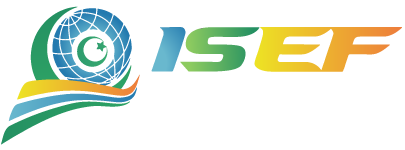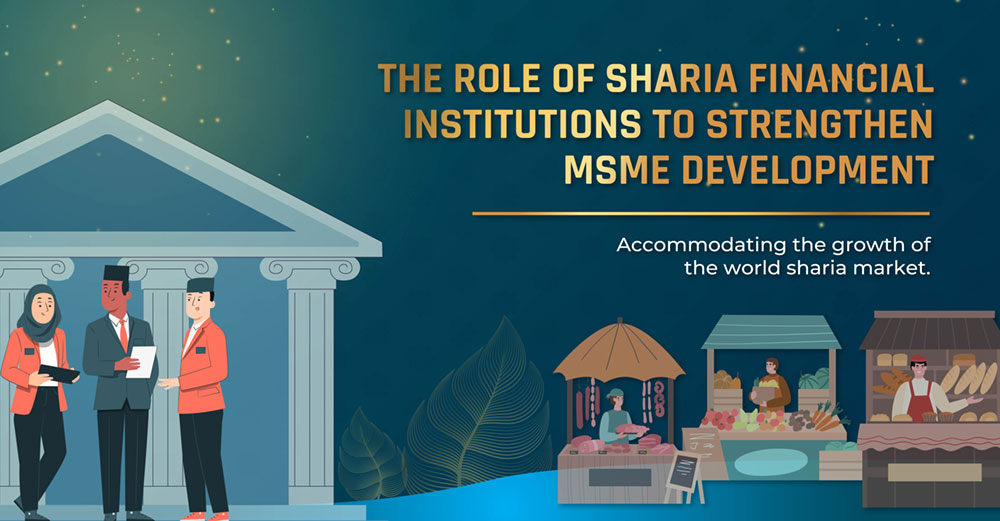The Role of Sharia Financial Institutions to Strengthen MSME Development
Accommodating the growth of the world sharia market
The development of the Islamic or sharia economy is increasingly getting attention from the business and banking sectors. This is especially evident with the success of Indonesia, which succeeded in ranking among the top ten countries in the world that are developing the halal industry. In addition to changing the direction of the global market with halal products, the Micro, Small and Medium Enterprises (MSME) sector is also able to contribute to encouraging sharia economic growth.
Basically, the principle of Islamic finance is that there are benefits to be gained by both parties, the seller and the buyer. Some examples of sharia financial products are mudarabah and musharakah financing, while financing with the principle of leasing is operated in the form of ijarah and ijarah muntahiyah bittamlik, with the object of the transaction in the form of services or benefits of goods. Financing with the principle of buying and selling is in the form of murabahah, salam, and istishna’ receivables with the object of the transaction being in the form of goods. Service products in financing are also included in the form of disbursement of funds with lending and borrowing transactions in the form of receivables al-qardh (loans of kindness), rahn (pawning), al-hiwalah (transfer of debts), wakalah (trustee), and kafalah (bank guarantees).
As a derivative of the sharia banking system, sharia cooperatives can be an alternative for MSME actors in needing additional capital or an injection of funds in entrepreneurship. As we know, Sharia Cooperatives are cooperative business entities using sharia principles, having the same rules as general cooperatives. However, in contrast to the products that exist in general cooperatives, the names and systems are changed and adapted to the guidance and teachings of the Islamic religion.
The Indonesian Sharia Cooperative is a secondary cooperative consisting of primary sharia cooperatives spread throughout Indonesia, which is a conversion from conventional cooperatives through an approach that is in accordance with the economic example of the Prophet and his companions. Sharia cooperatives have a common understanding in that their business activities are engaged in financing, investment, and savings according to the profit sharing pattern (sharia), or better known as sharia financial services cooperatives. With the existence of a sharia cooperative system, it is hoped that it can meet the financing needs of all levels of society that are yet to be reached by sharia banking itself, such as in rural areas and MSMEs.
Government Support in Halal MSME Development
Now, the development of halal products by MSMEs is increasingly being planned in government programs to make Indonesia a halal producer in the world. Efforts that have been made by the government include making a free halal certification policy for MSMEs and building halal industrial areas (KIH) in three locations.
The efforts made by the government are expected to encourage the development of the halal product industry in Indonesia, for example the food industry. In fact, the opportunity for the halal industry in the KIH area does not only have a good impact on the food industry. Later, the infrastructure will be able to accommodate all components of the halal industry, be it food or beverage, fashion, finance, entertainment and media, pharmaceuticals, tourism, and cosmetics.
MSMEs are businesses that are managed by entrepreneurs and small capital, but have a large participation as one of the pillars of the Indonesian economy. However, due to the COVID-19 pandemic, MSME actors have difficulty getting financing to start a business, so they need capital to develop their business. The provision of financing to MSMEs has also become more effective, because it is allocated directly to the needs of small businesses. The role of Islamic Financial Institutions (LKS) is needed for the development of the MSME ecosystem.
Based on data from the Pew Research Center’s Religion & Public Life, the Muslim population in the world in 2020 reached 1.9 billion people. That number is expected to continue to grow to reach 2.2 billion people or 26.5% of the world’s total population in 2030. Thus, the increase in consumption and halal service products will be driven by the increasing population of Muslims in the world. For this reason, various ways must be carried out by MSME actors in order to survive during the pandemic, one of which is by making the transition to the digital era. This is because digitalization is a solution and the right place to move the national economy in the midst of a pandemic, in order to expand marketing reach and increase business through digital technology.


